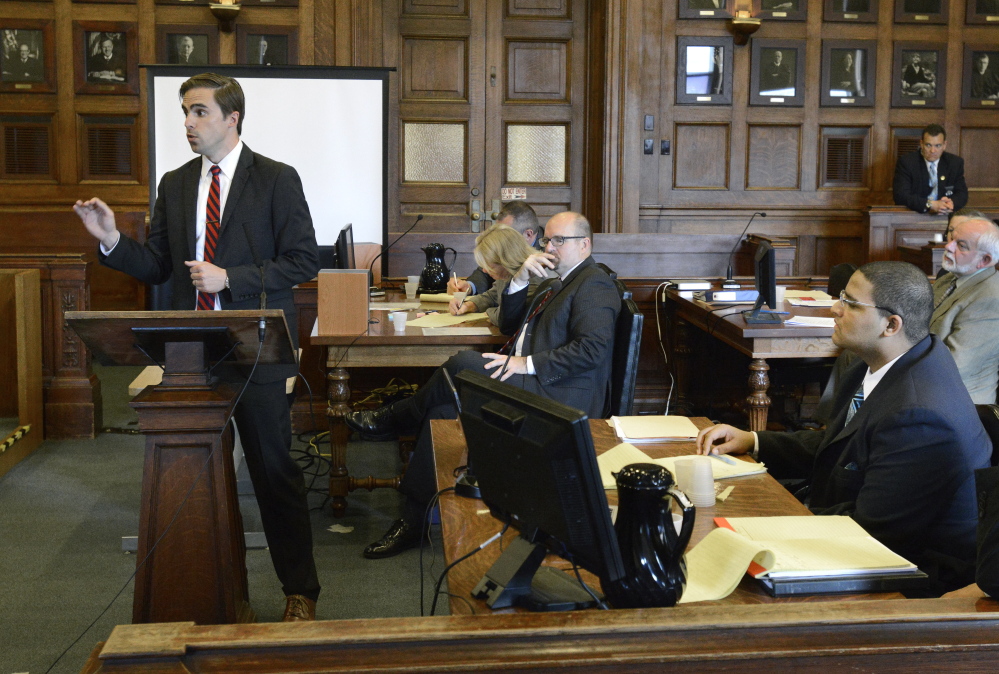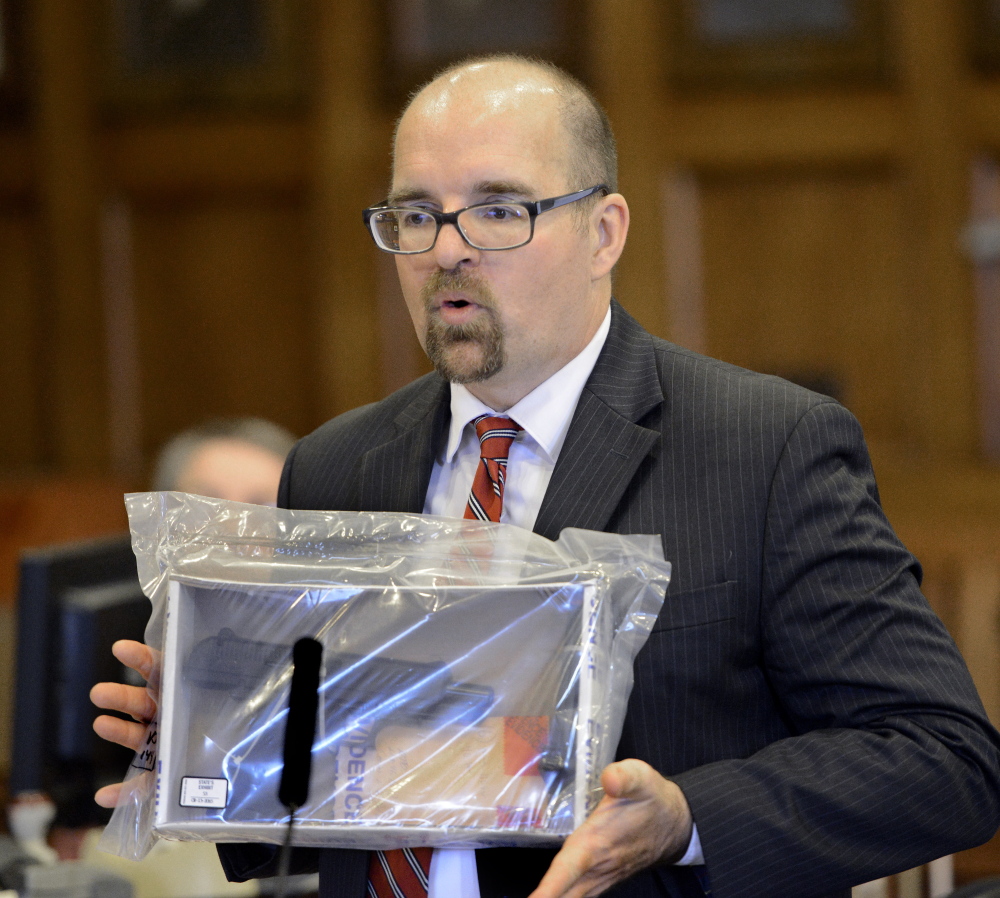Brian Malloy’s first instinct after finding the frozen and partially decomposed body of his friend Margarita Fisenko Scott in the back seat of her snow-covered Chevrolet Trailblazer was to shut the vehicle door so her husband wouldn’t see her like that.
But it was too late.
Her husband, Cary Scott, was standing behind Malloy when he opened the passenger side door that day on Jan. 17, 2013, and immediately recognized his wife, though her body was twisted at an awkward angle and draped over the backseat floor.
“First he started screaming, ‘It’s her, it’s her.’ He started to lose it,” Malloy said. “He just found his wife murdered, dead in the back seat of the car. He was a total mess, distraught.”
Malloy described that scene from the snowy parking lot of Motel 6 in Portland while testifying Monday as one of the first witnesses at the trial of Anthony Pratt Jr., a New York man accused of murdering Scott with a single gunshot two months before Malloy and her husband found her.
Monday was the first day of Pratt’s jury trial at the Cumberland County Courthouse in Portland, where the presiding judge, Justice Thomas Warren, has described the case as a whodunit and witness testimony is expected to last up to two weeks.
Pratt, 21, of Queens, N.Y., is accused of shooting Scott, his 29-year-old lover, on Nov. 11, 2012, inside an apartment on West Concord Street in Portland, where both Pratt and Scott were living temporarily with their friends. Pratt allegedly loaded Scott’s dead body in the back of her Trailblazer after shooting her and drove the SUV to the hotel parking lot on Riverside Street, where it stayed without anyone looking inside until Malloy and Cary Scott found it.
Malloy said he knew that Cary Scott had become distressed looking for his wife after she disappeared in November and that Scott was searching for the SUV they shared.
So Malloy, who lives on Riverside Street, immediately called Scott when he passed the snow-buried vehicle outside the hotel and thought it looked familiar.
Attorneys on either side of the murder trial made opening statements late Monday morning that presented jurors with starkly different versions of what they can expect to hear and see during the next two weeks.
Prosecutor Assistant Attorney General Donald Macomber, said Pratt fled from Maine back to New York on the day of Scott’s murder, and though they had been in an intimate relationship never tried to call her again.
Macomber turned and pointed at Pratt as he spoke before the jury, holding aloft a pistol tagged as evidence that he said was used to fatally shoot Scott, also known as Rita, once through the neck.
“This man, the defendant Anthony Pratt, shot Rita, shot her with this gun,” Macomber said at the start of his 40-minute opening presentation.
One of Pratt’s attorneys, Dylan Boyd, told jurors during his opening remarks that evidence would show that police investigators were “too hasty and close-minded,” leading them to focus on Pratt as a suspect, even though two other people with a motive to kill Scott had left DNA evidence on the pistol used to shoot her.
Boyd told jurors that although police discovered a bullet hole in the apartment where Scott was killed that had been plugged with a piece of chewing gum with Pratt’s DNA on it, they jumped too quickly to try to confirm, based on that evidence, their suspicions that Pratt had committed the murder.
“The police and prosecutors in this case, despite their best efforts, are guilty of confirmation bias,” Boyd said. “I urge you not to make the same mistake, ladies and gentlemen.”
Boyd said the people Pratt and Scott were staying with on West Concord Street, Christopher and Tunile Jennings, were the ones who left DNA evidence on the handle and trigger of the murder weapon.
Christopher Jennings was the last person to have sex with Scott before her death, and Tunile Jennings, by her own admission, had threatened to kill Scott if Scott had sex with her husband, the defense attorney said.
Boyd said that Christopher Jennings, who has a felony gun conviction and now faces a pending cocaine trafficking charge, has lied repeatedly to police and continued to change his story in an effort to stay out of trouble.
Prosecutors said they expect to call more witnesses on Tuesday, including a drug dealer who introduced Scott to Pratt, a medical examiner who performed the autopsy on Scott, and Westbrook police who investigated an incident of alleged domestic violence between Scott and Pratt when he became jealous after she returned to her husband’s apartment on Nov. 10, 2012, hours before her murder.
Pratt has pleaded not guilty to a single count of murder and has been held without bail since his arrest in New York in April 2013.
Neither Christopher nor Tunile Jennings has been charged in connection with Scott’s death.
Send questions/comments to the editors.




Comments are no longer available on this story